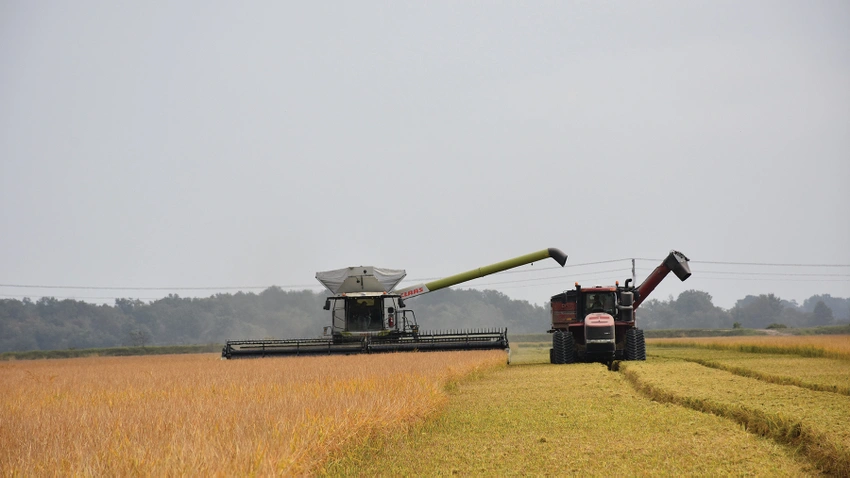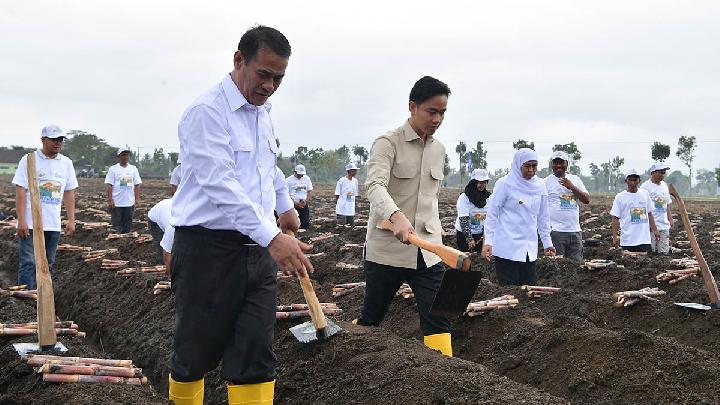Tags
U.S. rice exports to Iraq at risk after restrictions imposed
Treasury Department restrictions limit the amount of dollars Iraq can use to buy U.S. rice.

Banking restrictions place exports of U.S. rice to Iraq, the second largest market for those exports, at risk.BRENT MURPHREE
As U.S. rice farmers rush to finish planting their 2024 crop, one of their largest export markets is at risk because of financial restrictions placed on banks that would normally provide dollars for U.S. rice shipments to Iraq.
Iraq became the second largest market for U.S. milled long grain rice after USA Rice signed a 2021 Memorandum of Understanding with Al Awees, the entity that buys rice on behalf of the Government of Iraq, for the purchase of 200,000 metric tons of rice per year.
Earlier this year, the U.S. Treasury Department’s Office of Foreign Assets Control banned eight commercial banks in Baghdad from buying U.S. dollars as part of a crackdown on currency smuggling to Iran, according to reports by Reuters. The restriction limits the amount of dollars Al Awees can use to buy U.S. rice
A group of 12 rice-state members of Congress, led by Sen. Bill Cassidy, R-La., sent a letter to Andrea Gacki, director of the Office of Foreign Assets Control, on April 15, asking her to “work quickly and cooperatively” with at the U.S. Departments of Agriculture and State to find a resolution for the financing restrictions impasse.
Food basket
“For the past several years U.S. rice has been part of the food basket providing approximately 41 million Iraqis with a nutritious, healthy food staple commodity,” the letter said. “The Iraqi people are import dependent for much of their food, and without access to a staple of their diets, middle- and low-income families will quickly move into a food insecure situation.
“Given the food insecurity and political instability prevalent in other parts of the Middle East, it is critical that we work creatively to ensure that Iraq can finance staple food imports.”
An Iraqi delegation, led by Prime Minister Mohammed Shia’ Al Sudani, was in Washington the week of April 15 to discuss a number of issues, including the food and other security concerns, with U.S. government agencies and President Biden.
U.S. merchants have sold 80,000 metric tons of rice to Iraq in the current marketing year. But the sanctions by the Office of Foreign Assets Control have restricted the use of U.S. dollars so that Al Awees is unable to continue with its purchases of U.S. rice, according to USA Rice.
The U.S. has control over more than $100 billion in Iraq’s reserves from oil revenues and other financial transactions. Complicating the situation, analysts say the current Iraqi government has been supported by Iranian-backed political parties and other groups with interests in Iraq’s economy, including banks which have long been seen as a money laundering hot spot.
Access to U.S dollars
On the other hand, the Al Sudani administration has been credited with economic and financial reforms that have helped reduce Iran’s ability to access U.S. dollars.
“We commend OFAC and the Department of Treasury for working with banks around the world to curb transactions related to fraud, money laundering and other illegal uses of U.S. currency,” the congressional letter said. “However, there must be other compliance steps that can be taken to thread the needle and provide support to banks that play a commercial role in financing substantial U.S. exports.”
The Trade Bank of Iraq, which, the letter said, will eventually be the only institution with pure Iraqi ownership in the country with access to U.S. dollars “does not have adequate leverage to finance the food basket items and additionally has cumbersome requirements for financing which dis incentivizes companies, like Al Awees, from doing business.”
The letter noted all of the 200,000 metric tons of rice scheduled to be shipped under the Memorandum of Understanding in the 2023-24 marketing year is grown and milled in the states of the members signing the letter.
“This means that it’s not only supporting the thousands of rice farmers we represent but also the merchants and millers that handle, process and package that rice,” it said. “Those other businesses in the value chain all provide thousands of jobs across rural towns in Arkansas, Louisiana, Mississippi, Missouri and Texas.”
Besides Cassidy, the letter was signed by Senators John Bozeman of Arkansas and Roger Wicker and Cindy Hyde-Smith of Mississippi and Representatives Rick Crawford, French Hill, Bruce Westerman and Steve Womack of Arkansas, Clay Higgins and Julia Letlow of Louisiana and Mike Ezell and Trent Kelly of Mississippi.
https://www.farmprogress.com/rice/u-s-rice-exports-to-iraq-at-risk-after-restrictions-imposedPublished Date: April 25, 2024






